Paolo Campigotto
Personalized and situation-aware multimodal route recommendations: the FAVOUR algorithm
Feb 29, 2016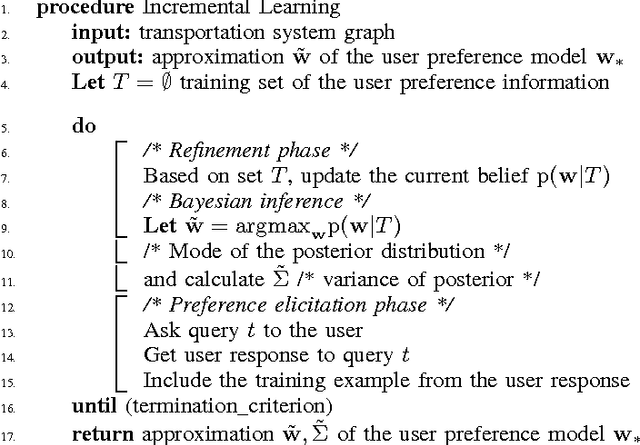
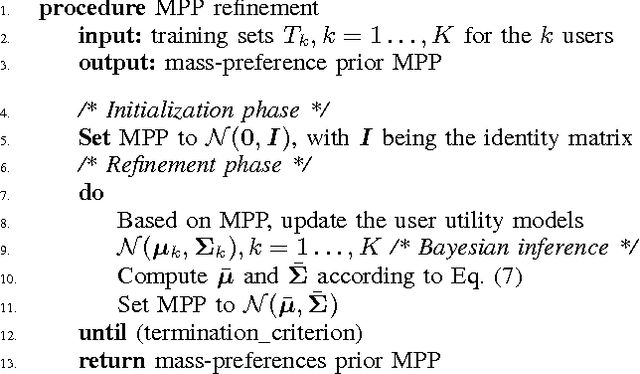
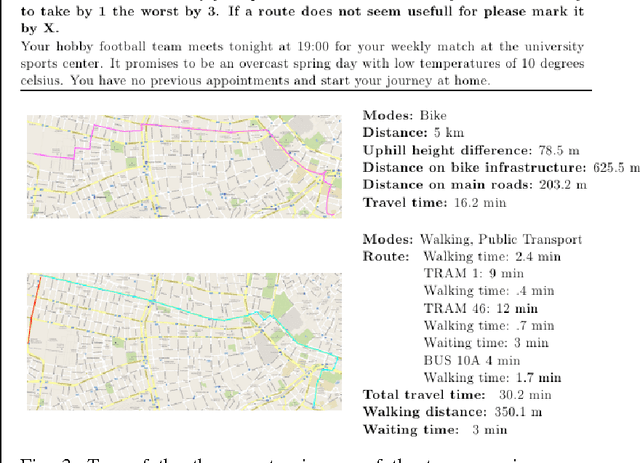
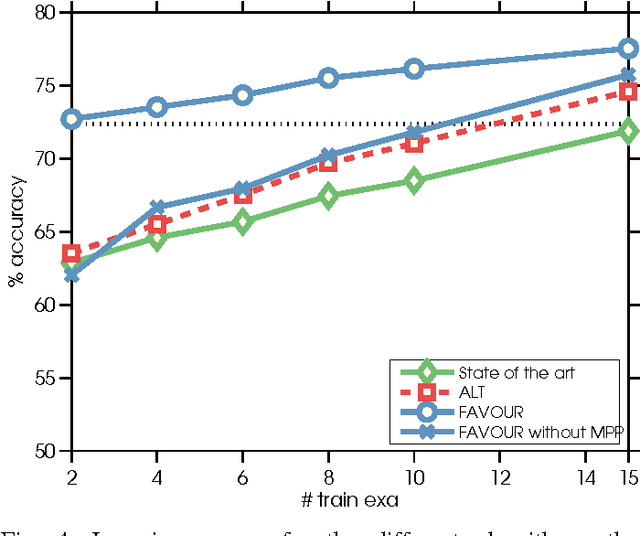
Abstract:Route choice in multimodal networks shows a considerable variation between different individuals as well as the current situational context. Personalization of recommendation algorithms are already common in many areas, e.g., online retail. However, most online routing applications still provide shortest distance or shortest travel-time routes only, neglecting individual preferences as well as the current situation. Both aspects are of particular importance in a multimodal setting as attractivity of some transportation modes such as biking crucially depends on personal characteristics and exogenous factors like the weather. This paper introduces the FAVourite rOUte Recommendation (FAVOUR) approach to provide personalized, situation-aware route proposals based on three steps: first, at the initialization stage, the user provides limited information (home location, work place, mobility options, sociodemographics) used to select one out of a small number of initial profiles. Second, based on this information, a stated preference survey is designed in order to sharpen the profile. In this step a mass preference prior is used to encode the prior knowledge on preferences from the class identified in step one. And third, subsequently the profile is continuously updated during usage of the routing services. The last two steps use Bayesian learning techniques in order to incorporate information from all contributing individuals. The FAVOUR approach is presented in detail and tested on a small number of survey participants. The experimental results on this real-world dataset show that FAVOUR generates better-quality recommendations w.r.t. alternative learning algorithms from the literature. In particular the definition of the mass preference prior for initialization of step two is shown to provide better predictions than a number of alternatives from the literature.
Learning Modulo Theories for preference elicitation in hybrid domains
Aug 31, 2015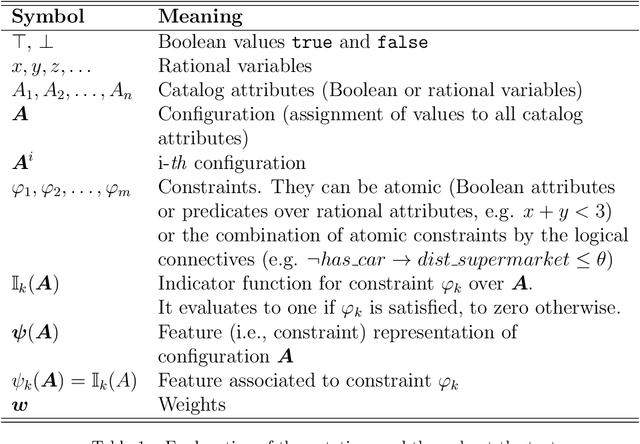

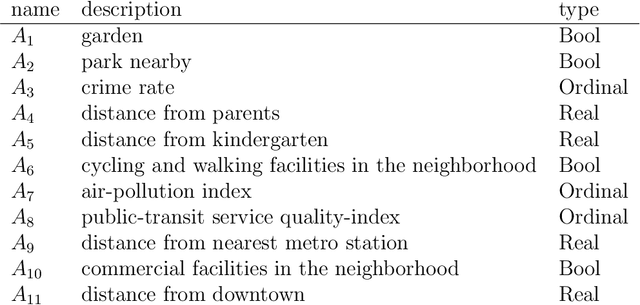

Abstract:This paper introduces CLEO, a novel preference elicitation algorithm capable of recommending complex objects in hybrid domains, characterized by both discrete and continuous attributes and constraints defined over them. The algorithm assumes minimal initial information, i.e., a set of catalog attributes, and defines decisional features as logic formulae combining Boolean and algebraic constraints over the attributes. The (unknown) utility of the decision maker (DM) is modelled as a weighted combination of features. CLEO iteratively alternates a preference elicitation step, where pairs of candidate solutions are selected based on the current utility model, and a refinement step where the utility is refined by incorporating the feedback received. The elicitation step leverages a Max-SMT solver to return optimal hybrid solutions according to the current utility model. The refinement step is implemented as learning to rank, and a sparsifying norm is used to favour the selection of few informative features in the combinatorial space of candidate decisional features. CLEO is the first preference elicitation algorithm capable of dealing with hybrid domains, thanks to the use of Max-SMT technology, while retaining uncertainty in the DM utility and noisy feedback. Experimental results on complex recommendation tasks show the ability of CLEO to quickly focus towards optimal solutions, as well as its capacity to recover from suboptimal initial choices. While no competitors exist in the hybrid setting, CLEO outperforms a state-of-the-art Bayesian preference elicitation algorithm when applied to a purely discrete task.
 Add to Chrome
Add to Chrome Add to Firefox
Add to Firefox Add to Edge
Add to Edge